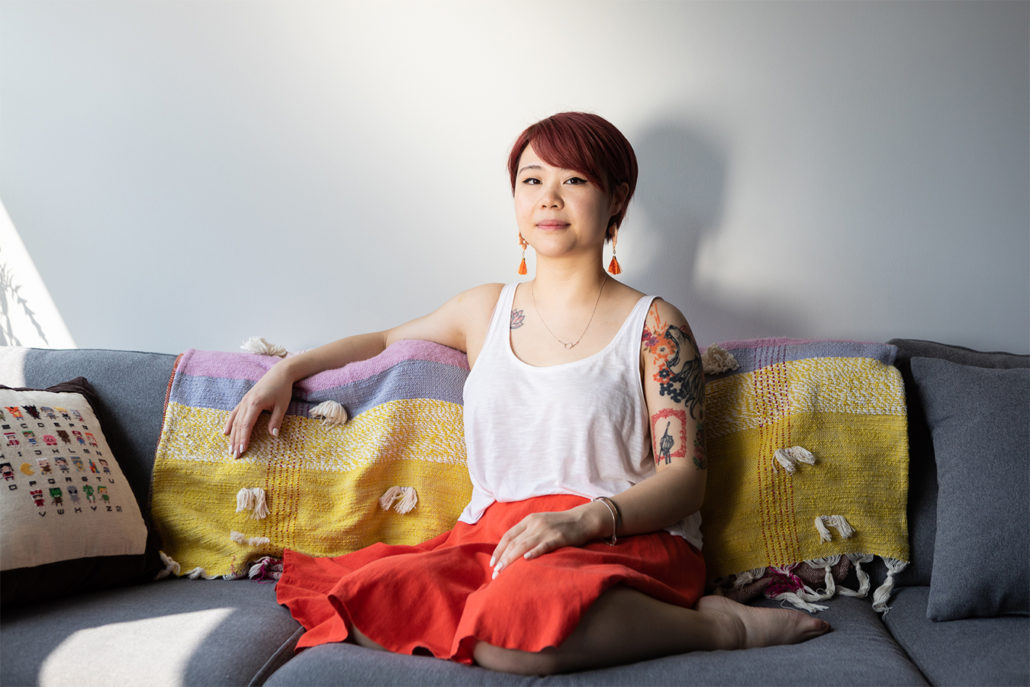
Many misconceptions surround youth who’ve been in the child welfare system. I hope my story makes you rethink yours
The first time I went into care, I was seven; my sister was four; and my brother was an infant. Our parents were dealing drugs, and my mom was stopped and arrested while she was driving me to school. While Mom and Dad were in prison, my siblings and I were split up, and we stayed in two separate foster homes. After they got out, my parents must have said and done all the right things in court, because we were returned to them.
The second time I went into care, I was 12. Domestic violence was always part of my family life. The stresses of being in a new country, living in poverty, trying to find stable places to live, trying to support three children, grappling with mental illness in a culture that didn’t talk about such things and having no family support system all came into play.
The thing I hated most was the younger children witnessing it. One night it got graphic, and there was blood. When I started thinking my mom could lose her life, I called the police. My parents were arrested again. My siblings and I stayed with a police officer until three or four in the morning, then we moved in with a foster family in the middle of the night.
We never returned home.
For the rest of my childhood, there would always be new foster parents, new houses, new schools, new social workers and new lawyers—until I aged out of care, nine years ago, at 16.
Foster care can be positive for many kids, but my siblings and I felt we were always treated as “less than” by the families we stayed with; for example, in one foster home, we ate pizza pockets on plastic plates while the family ate proper meals on ceramic ones.
To one of my foster moms, teens were villainous. We butted heads over my siblings, as I was very parentified, and I found her controlling. But over time, I came to the conclusion: “She really hates me, so maybe life would be better for everyone if I left.” And that’s why I asked my social worker if I could plan for independent living at age 16.
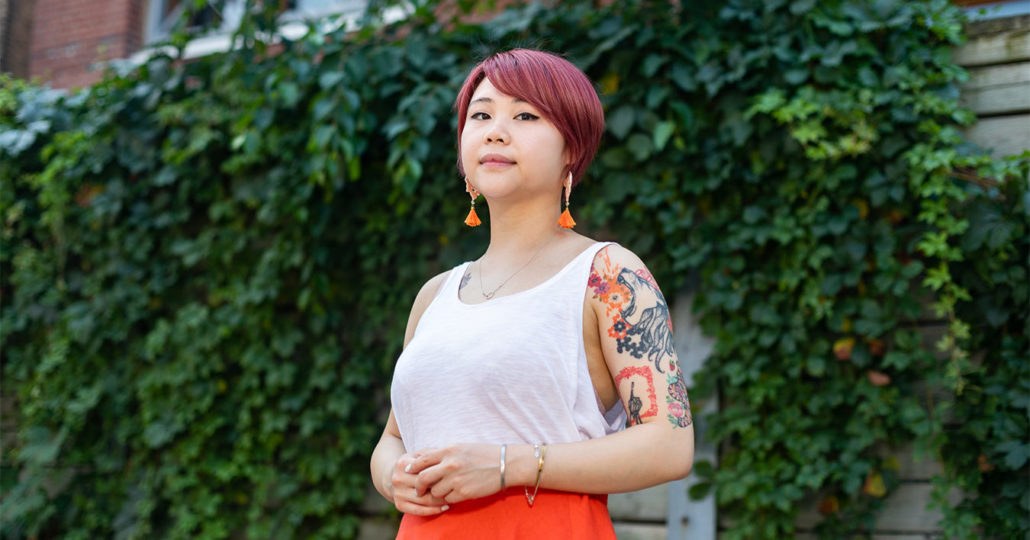
I was so excited just to get out. But after my worker dropped me off at my new place, with my things in garbage bags, it was really depressing. I sat in this room and cried, because I felt like nobody cared about me. About 90 percent of former youth in care end up on welfare within six months of aging out, but I worked a lot so I wouldn’t have to be alone with my thoughts.
Meanwhile, as my siblings were getting older, things changed for them in that home. My brother and sister were exposed to things that were distressing for them and were also punished for the smallest transgressions against the family’s strict rules.
It all came to a head with an argument between my brother and his foster mom. He was moved into a temporary foster home, and there was talk of a group home. He was crying and begging to stay. When you make a mistake as a foster kid, it can change your life.
I was worried because I knew how scary group homes could be. I asked my social worker what it would take for me to become my siblings’ caregiver.
I had to convince a lot of people to let me be a kin caregiver at 19. I was at school full-time, in the second year of my bachelor of design degree, but I got two jobs to ensure I was financially secure. I did a home study to make sure I was fit to be a caregiver and that my condo was safe and appropriate. I also took foster parenting classes.
It was exciting when my brother and sister moved in. I set up rooms for them—that was really fun. My sister was especially excited because, for once in her life, she had belongings that were her own. For a while, we were all really happy.
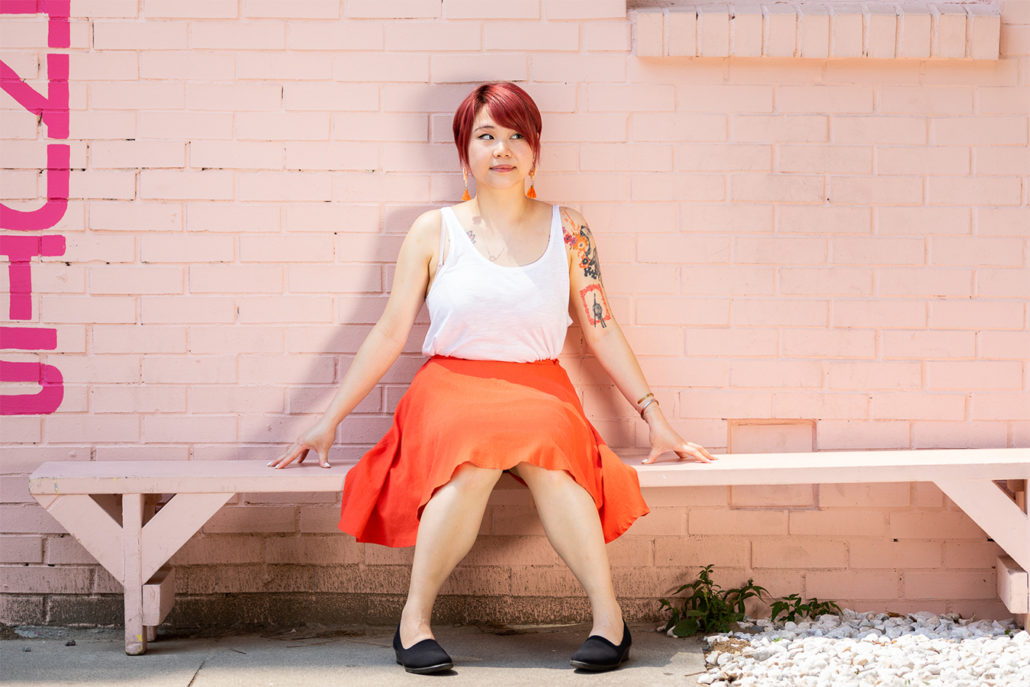
But it wasn’t easy. I felt I had to be perfect, and that was a lot of pressure. I know now it was unrealistic to think that, at 19, I could handle work, school, being captain of the varsity fencing team, being on the board of directors of a non-profit and raising two teenagers. I was on overdrive and didn’t take care of my mental health and my relationships at the time. In a way, I feel I neglected my siblings as well. One time my brother and I were arguing about something, and he said “How would you know? You’re never home.” That really shook me.
Because I was the one who made the call that put us into care that night, I felt a lot of responsibility and guilt. I believed that I didn’t deserve good things for myself. I’d have trouble eating out in restaurants or enjoying myself in any way. The only rewarding thing I allowed myself was work, but I’d do so much that it became a punishment. One summer, when I was 22, I realized, “If I don’t do something for myself, I’m going to resent my brother and sister for the rest of my life.” That year I took a solo trip for the first time, to Tokyo, and my siblings stayed in respite care for a few weeks.
As I travelled, I resolved that, one day, I’d take my brother and sister back to those places I loved and show them, too. The time apart really helped us. We missed one another, and when I came back, we valued what we had together more.
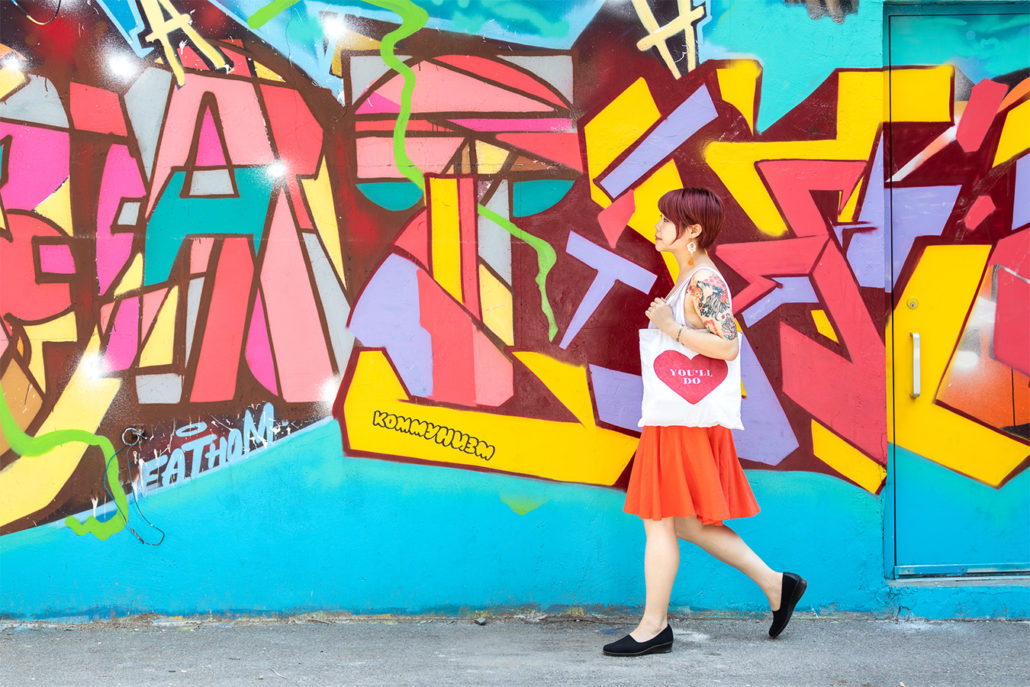
Both my siblings are now in post-secondary education, working part-time and pursuing their own interests. I created an environment in which they were able to explore different parts of themselves and do the things they wanted in life. I’m so proud of who they’ve become. That’s something I can’t put on my resumé, but I really want to—because I did that!
What people who’ve aged out of foster care want you know
Every young person’s experience in the system is unique, as is everyone’s experience of aging out. But from talking with other people with similar trajectories, I’ve noticed recurring themes. Here are some of the things that people should know.
1. You never stop caring about your parents.
I’ve lived with guilt for the past decade, knowing my parents suffered from my decision to call the police the night we went into care. I often think, “If I hadn’t made that call, they wouldn’t have gone to jail, and they wouldn’t have been separated from us.” I’d sneak out of school to see them whole time I was in care. They were still my parents, and I loved them.
I was the only true bilingual in our family who could translate important documents my parents got in the mail, so I felt like the only person who could take care of them. To this day, I pay their home and car insurance. Even though both my parents had serious failings, they also struggled with poverty and tremendous stress as newcomers to Canada with little English. They had trouble accessing supports and were confused by the systems here. They still struggle with technology. But even after we left their care, they encouraged us to do well in school and never stopped missing us.
2. Knowing the difficult parts of your story can help you heal.
When I was 21, I took my mom to the doctor for a breast cancer scare and found out she was taking all these meds for bipolar disorder, schizophrenia, anxiety and depression. For 21 years of my life, I didn’t know about these things she was struggling with—when I was in care, nobody ever told me she had mental health issues. For years, I’d resented my mom for not being capable of raising us. Suddenly, everything I grew up with made sense. I started to forgive her, and our relationship got a lot better.
For my siblings and me, accessing our files and even our own medical histories was hard, and the process was slow; important documents got lost in the shuffle. But today there are many former youth in care advocating for better access to their own files.
3. You may never stop worrying about homelessness.
In Ontario, around 43 percent of homeless youth have been involved with child protection. It’s exponentially harder to find housing when you don’t have a credit record or a lot of zeros in your bank account. That was how I got my first place, actually. I was really good at Photoshopping, so I added zeros to my bank statement to convince my landlord to rent to me. The thing I was doing to survive back then eventually became really profitable for me—now I work as a graphic designer.
4. It’s hard to relate to young people when you have the life experience of a middle-aged person.
I never really got the chance to be a kid, because I dealt with so much so young. I’m very mature in my head, and I’m always in my head. Shortly after launching into independent adult life at 16, I started campaigning to improve the child welfare system. By 19, I was on the board of directors for Peel Children’s Aid Society: hiring people, getting their police checks done and paying salaries at an age when most students are focused on fun. Even at 25, I feel I have to dumb myself down and force myself to be approachable and friendly for other people my age. Fortunately, I feel a kinship with other young people from care. But a lot of former foster kids never find their people. They get lost in life.
5. Dating: It’s complicated!
I struggle to find romantic partners who feel like equals. When I first aged out, I had some unhealthy relationships with older men, because I’d cling to anyone who seemed to care for me a bit. In my 20s, I’ve often felt I have to make myself smaller to get a romantic partner to like me. Also explaining the whole foster care thing is exhausting when you’re just getting to know someone. And I never want to introduce a new partner to my biological parents.
6. It takes a conscious effort to find your voice after leaving the system.
I often felt like I had no voice in foster care. I’m still learning how to make myself heard and respected. I’m not a very loud person, and I’m a five-foot-one Asian woman. I took a job as a fencing referee to challenge myself to become more commanding. I struggle because the athletes are typically six-foot-tall attorneys, doctors and businessmen with money—people in positions of privilege and power who are used to getting their own way. But I keep pursuing it because I’m a fish out of water in that world, and I know that learning to get respect there will help me get respect in other areas of my life.
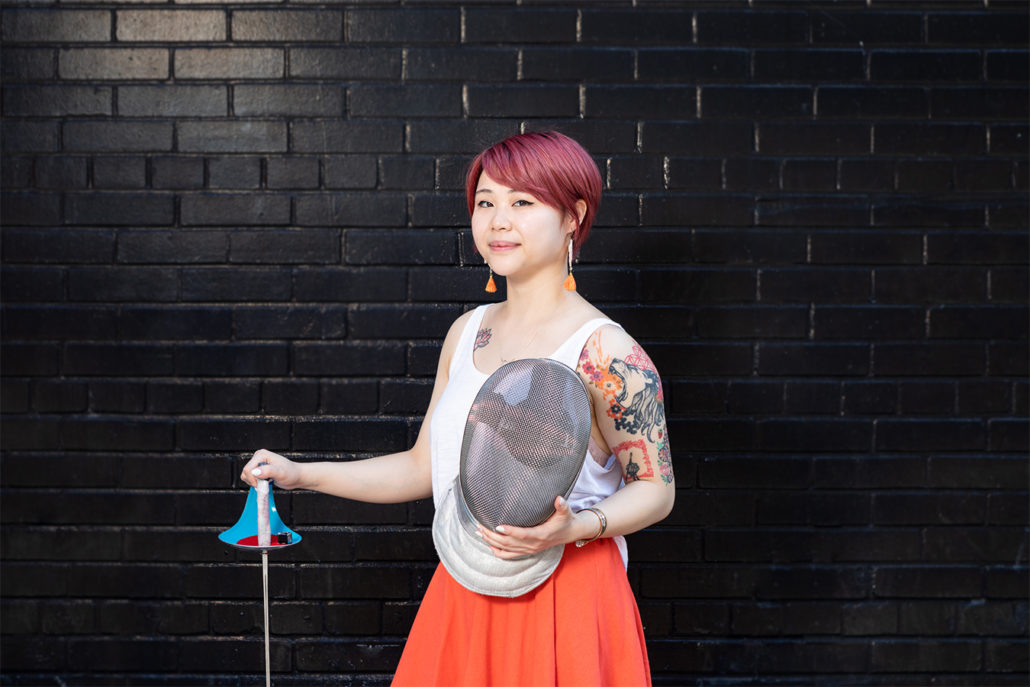
7. Adults who care can make all the difference.
Fifty-six percent of Ontario Crown wards don’t complete high school. And a 2002 report from the U.K. found that half of young people in youth custody had previously been in care. Young women who age out of care are also far more likely to become victims of human trafficking, get pregnant before age 20 and use drugs. I was lucky; my teachers knew I was living alone from age 16, so they gave me special attention. I think that helped me get into and through art school. And in my 20s, I’ve been fortunate that various adults have guided me. You don’t always know when a young person in your community is facing extra challenges, but you should be aware that your mentorship could change their life.
8. You’re never too old to be adopted.
When the school year’s over or it’s Christmas or Thanksgiving, young people like me and my siblings have to figure things out themselves. And, in foster care, nobody really taught me adulting: things like how to submit a rental application or build a good credit score. My social worker asked me once if I wanted to be adopted, and I said no. It never came up again. I felt then that I didn’t need or want anybody, but I wish someone had taken the time to explain adoption to me and helped me understand what it could have given me for years to come.
Fortunately, one of my former fencing coaches has, for the past six years, become like a parent to me. He saw my potential, listened to me and told me, “A lot of adults can’t deal with things you deal with on a daily basis.” He sees me as a person, and he sees all I have done. I’m now 25, and we’re discussing adoption. After going into care and becoming resolved to the idea that I’d never be somebody’s child, I feel so lucky to have found a parent at this stage in my life.